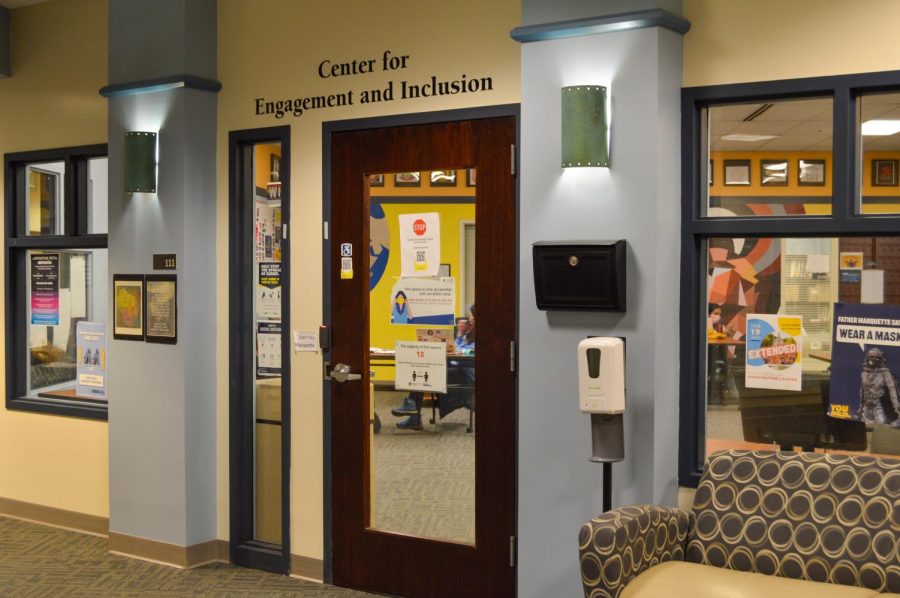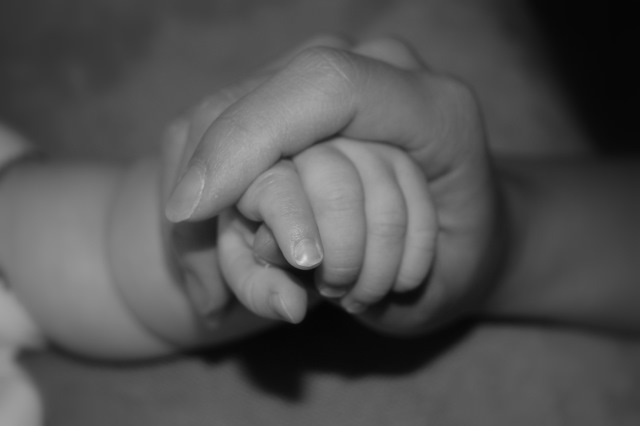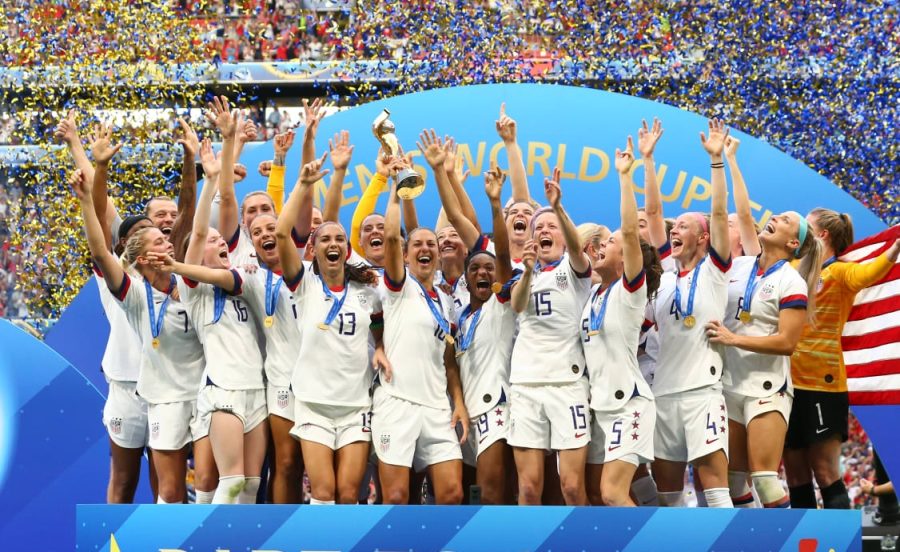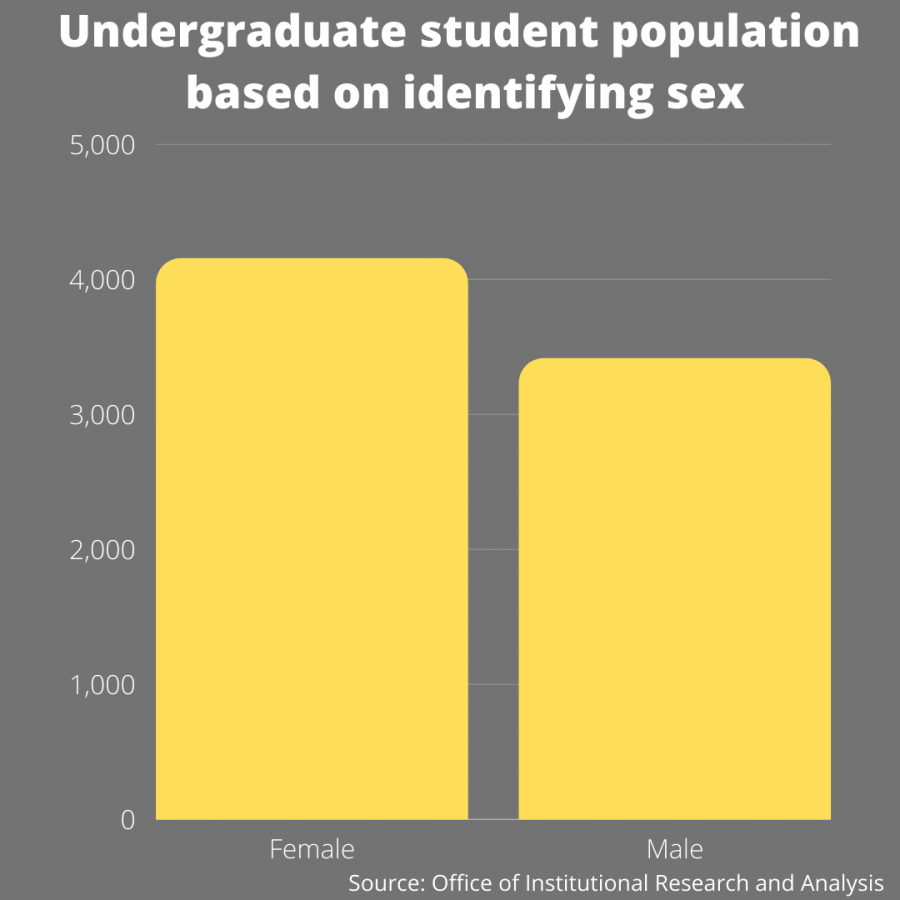
This story is part of a series called “Empowering Women” that focuses on women’s issues for International Women’s Day.
Gaslight, gatekeep, girlboss: the holy trinity insult exemplifying the sexism that women in power receive as they take on leadership in the workforce.
The meme “gaslight, gatekeep, girlboss” rose in popularity during Jan. 2021 as a response to feminist attitudes in the workplace, parodying the “live, laugh, love” saying. This meme invalidates the work that women put into their work life and devalues their contribution to the corporate world.
Women’s work lifestyle is not as respected or valued as men’s are through lack of representation, the toxicity of the girlboss movement and the exclusion that pits women against women.
Currently, women have very little representation in corporate leadership. According to the Pew Research Center, just 5.4% of women are CEOs in Fortune 500 companies in 2017. This number does not represent the number of women in the workforce though, as 56.1% of the female population aged 16 and over engaged in the workforce during 2021.
Girlboss is a phrase used by workplace feminists to describe their “hustle” culture entailing long work hours that allow them to rise up into leadership roles, like CEOs and presidents of companies.
In order to be viewed as a productive employee, “hustle culture” calls for more than just the average 9-5 workday; Work becomes the employee’s life, as they log hours after they are supposed to be off the clock. This culture falsely gives the notion that if a person works harder, they will become more valuable.
The implications of a nonexistent work-life balance that hustle culture presents can certainly be scrutinized, but within our society, men’s commitment to the hustle is taken seriously and praised. The same cannot be said for women.
Hustle culture becomes an exceptionally complicated conversation when gender is involved. For a woman to put in extra work hours to try and break through a system pitted against her is inspiring, but the toxicity prevails more often than not.
Sophia Amoruso, the founder of online, fast-fashion brand “Nasty Gal,” is the epitome of a girlboss. She released a memoir in 2014 titled “#Girlboss,” detailing her experience within the corporate world through a feminist perspective. Amoruso lives and breathes hustle culture and explains the tribulations she faced within the industry which was quickly shared in a 2017 Netflix series named after Amoruso’s memoir.
Despite this uplifting story about a girl turning an eBay store into a fashion empire, her former employees have detailed the negative work environment within “Nasty Gal.” Early Glassdoor reviews detail that the employees suffered from a lack of leadership within the company. In June 2020, Amoruso stepped down from the role of CEO due to COVID-19 related reasons.
Girlboss culture is also plagued by exclusion. White feminism is a type of feminism that fights only for the rights of white, liberal, cisgender women instead of adopting an intersectional lens. The intersectional feminist fights for all races and abilities, while white feminism applies to just a select group of people.
Racism and sexism are both painfully apparent in the workforce. Women of color represent only a marginal fraction of the workforce. Currently, only 4% of women of color have executive-level managerial, whereas white women make up 20%. White women are also more likely to be promoted than women of color.
These instances cannot be boiled down to women not working as hard as men. When trends show that there is a disproportionate rate of success among a certain group of people, there is a larger problem of exclusion that must be addressed.
Hatred of the girlboss phenomenon is a reflection of how the girlboss has failed us. Money and success are the desired outcomes for reaching these leadership positions. While money is a significant predictor of success in our capitalistic system, we have conflated money with a feminist lens that has only perpetuated the problem. Money, a driving factor in greed, has been seen as a way to gain equality.
Women and their work must be recognized as influential in our society. Not only do women complete jobs well, but they also look to provide support for employee well-being. Sixty-one percent of female managers check on their employee’s emotional well-being, compared to 54% of male managers. Women are also more likely to check and make sure the workload is manageable for the employees.
The girlboss meme is a broader picture of internalized misogyny that our society perpetuates. Instead of joking about it and trying to laugh off the problems that our society faces, we must value the work all women do.
This story was written by Laura Niezgoda. She can be reached at [email protected]






